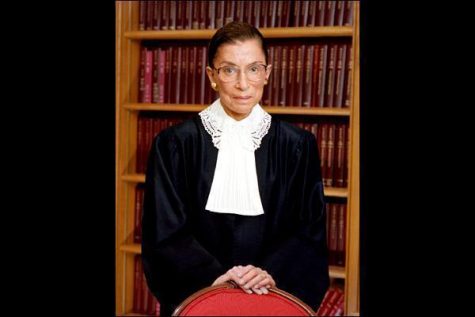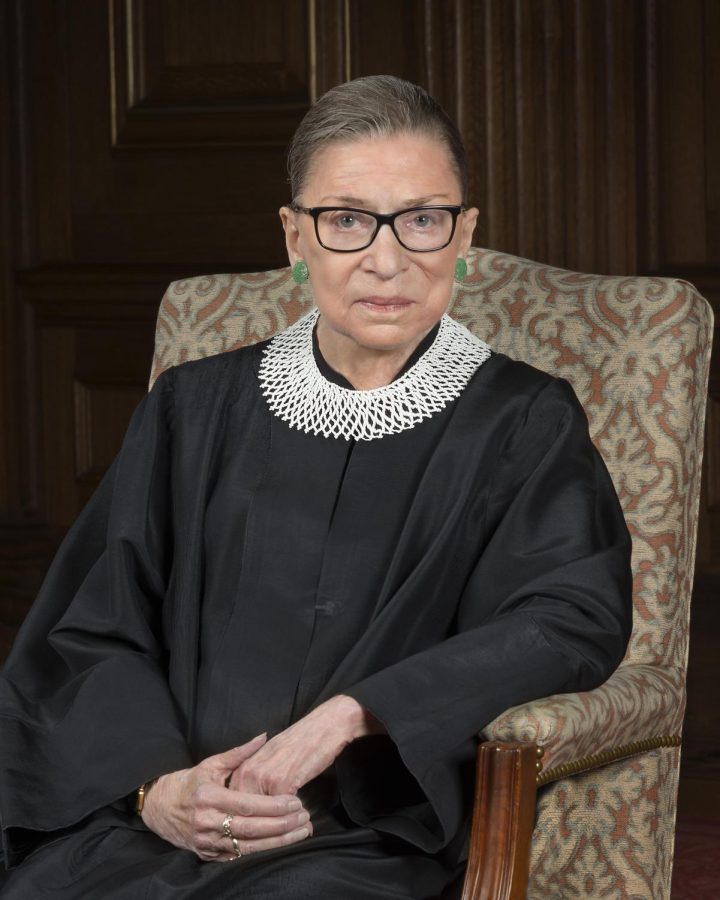Till the day she passed Ruth Bater Ginsburg fought not only on the court but off. Being an activist for Feminism, Ginsburg was the first to accomplish many things as a woman. For 27 years Ginsburg did the impossible, she was the second woman to serve on the United States Supreme Court.
Growing up in Brooklyn, New York in a family of four, Ginsburg faced many hardships. At the age of six her older sister died from meningitis. Many years later as Ginsburg was beginning high school her mom was diagnosed with cancer, growing up in a low income family only added onto the difficulties she had to overcome.
Ginsburg then went on to study at Cornell, an Ivy League school in Ithaca, New York, where she met her husband. Soon after she would have her first child, and soon after her second, they were named James and Jane.

First and foremost being a woman in the 1950’s was not the easiest. Ginsburg struggled to find jobs as not only a woman, but a lawyer. Though she attended Havard and Columbia Law School gender inequality was still very prominent.
President Jimmy Carter began Ginsburg’s high career in court with appointing her to the U.S Court of Appeals. Finally, on June 14, 1993 Ginsburg was appointed one of nine Supreme Court Justices by President Bill Clinton.
An important case that Ginsburg fought for was the United States v. Virginia case in 1996. In this case Ginsburg fought for women to be admitted into state-funded schools. Ginsburg believed that it was unconstitutional for schools funded by taxpayers to deny women education.
A more recent case that affected a large community was the Orgefell v. Hodges case. Ginsburg was a key role because without the 5-4 vote gay marriage would have not been legal in all 50 states. Not only did she help make that possible, she continued to fight for protection of those in the LGBTQ+ community after the case.
Ginsburg’s point of view in the Bush v. Al Gore case opposed the winning side. After a debate between soon to be
Presi

dent Bush and “enemy,” Al Gore. Bush demanded that there be a stop to the recount of his ballots. With this Bush was able to win the election. Ginsburg disagreed with the outcome of this greatly and thought he should have not won.
A victory in the 2018 case, Sessions v. Dimaya, is a big point in Ginsburg’s career. In this case Ginsburg ruled that non-citizens could not be taken out of the country. Not only did she win she was given majority opinion, this was the sixth time a woman has ever been given this.
On September 18, 2020 Ginsburg passed from complications with her pancreatic cancer. Ginsburg’s death caused a turn in the nation very suddenly. Because it’s election year a big decision has to be made on who will be the next Supreme Court Justice. But for many that is the last thought on their mind as they remember the life of Ruth Bader Ginsberg. Ginsburg in her life fought not only for rights for woman everywhere but persevered through her carrer with the injustices she faced.












Gramma Dale • Oct 16, 2020 at 6:51 PM
Fantastic article!!!!